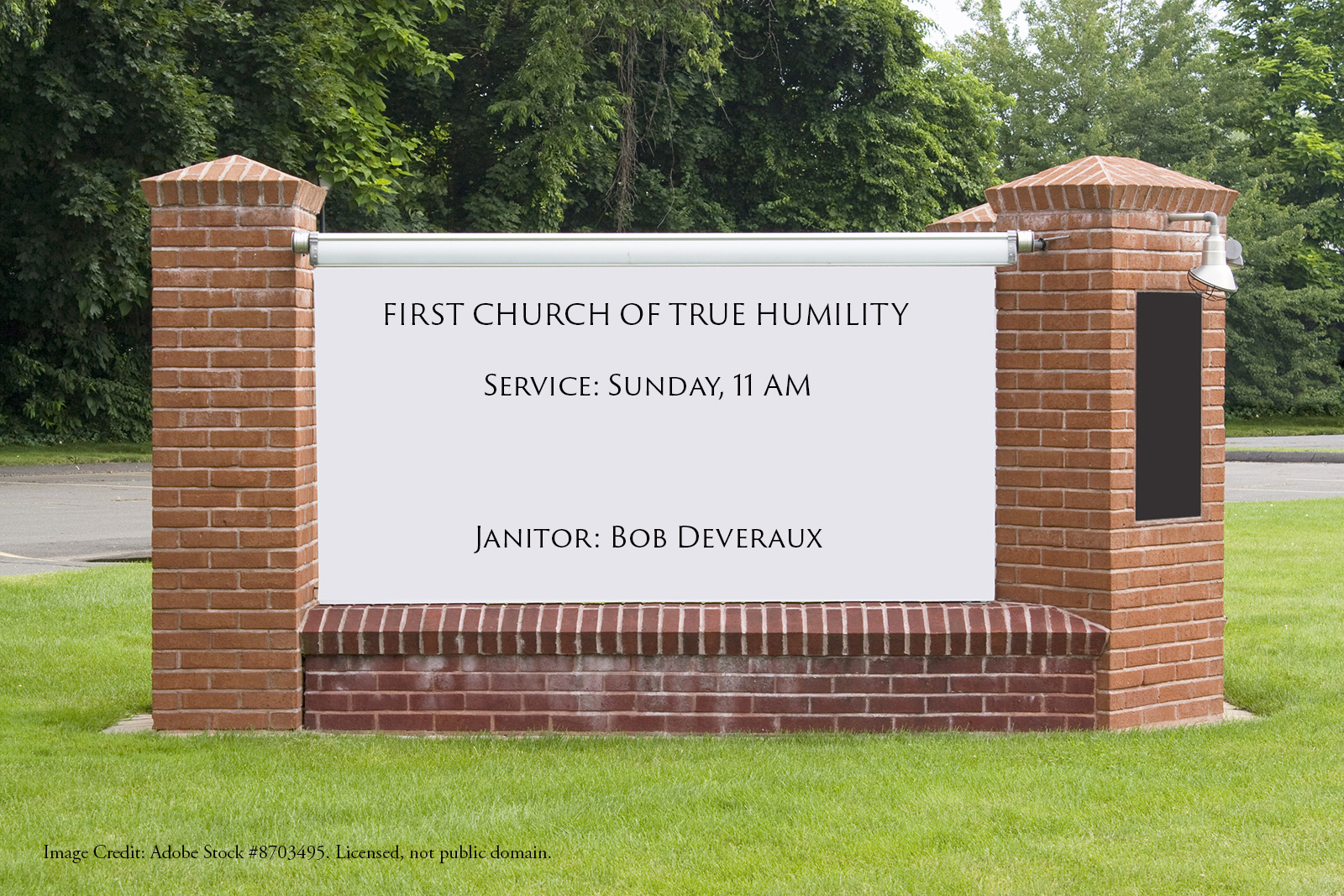Why I Don’t Control My Wife
Shortly after Jody and I married, I was approached by a member of our church. He had a demand. “You need to control your wife,” he said. “She says [fill in theological thing here] which is wrong! You need to straighten her out.”
I was astonished for a moment, but went with my gut. “I’d suggest you ask her about that idea,” I said. “She’s capable of answering for herself.”
I noted that my response was from the gut, but then I started to second-guess myself. On the one hand I certainly was confident Jody could take care of herself and answer whatever questions might be asked. On the other, I didn’t want it to appear that I was unwilling to defend her. So we had a discussion and concluded that we would both use that same answer when someone asked us to explain or justify the other. “Henry/Jody is capable of answering for him/herself.” It’s worked fine for us. We’d rather have it appear that we are refusing to defend one another than that one of us considers the other incompetent.
The first thing one might imagine was that this person was a male chauvinist who thought men should keep their wives in line. There was likely some of that involved. I doubt that he would have gone to Jody if he had agreed with her and asked her to keep me in line. But that wasn’t the only thing in play. There was, of course, the matter of theology, and also the matter of credentials. People disagree about theology all the time. I’m not concerned with the disagreement. I am concerned with the credentials.
The particular chauvinism involved was the assumption that I would automatically know more about any particular theological issue that Jody would. Some of that, as I said, was likely simply because she’s a woman and I’m a man. This sort of thing can vary from very subtle to quite blatant, as in this case. In regard to that I’ll simply repeat what I’ve said before. I believe that everyone should act and serve according to their gifts. Who should do something or take some office is not determined by anything other than what gifts they have for that activity and how they’ve developed those gifts.
For me this is a simple matter of recognizing each person as a person, and not as a category or a set of categories. I despise the term stupid, but I also despise the term smart as applied to a person. I think those words can be quite valid as applied to a specific idea. “Differently gifted” is often regarded as politically correct speech. I regard it as an accurate way of looking at people.
If I regard someone as stupid, I am absolved of further concern with that person in other ways. I have now dismissed the person. They might have many things they can do, yet because I have applied this general label, I am done with that person. On the other hand, if I label someone as smart, I will then regard them as more valuable in many and various positions, and again I absolve myself of looking at specific gifts. It’s quite easy, however, to assign a smart person to a position for which they are not smart.
I know that in reality it is rarely that extreme. People use a mix of seeing the specific gifts a person has and their overall label. Nonetheless I consider this type of thinking dangerous. It is counterproductive from a strictly business point of view. As a Christian I object to categorizing people in these ways, because I believe it violates the golden rule.
I can illustrate how this works with me and my wife. Let’s start with a question: Who is more important to our business, Energion Publications. I’m the person with training in theology and biblical studies. I do cover design and book layout. I’m the one who figures out which of the various standards and punctuation rules we’ll follow. I’ve written more words than she has. I keep the accounts. Without me, Energion Publications would not exist.
And then there’s the other side. Jody is the one who sets up the production schedule for a book. She’s the one who can organize our presence at a conference and create a display table. She’s the one who sees details in the appearance of a manuscript. She is best suited to recruit and work with certain authors, especially those who write devotionally. She’s the best salesman for a substantial selection of our products. She’s the one who gets me talking to the ones that I need to talk to.
I could list many more items for each of us. Can I say the same thing about Jody—without her Energion Publications would not exist? Absolutely. Even the more academic books which she would not consider herself qualified to edit would not be completed without her efforts.
It would be easy to consider my efforts as more important, just because I’m me, and I like to be important! I could obviously hire someone else to do all these other things. But if I’m honest, I know that there are people with the skills and gifts that I use as well. We are both essential!
So here’s the stupid-smart scale: Which of us is smarter?
That’s a question that just doesn’t work well. The fact is that we each have important, even critical gifts. There is no value in trying to make one better than the other. They are different. They are needed.
Now let’s think about the church. Is a person with gifts of administration less critical than one with pastoral gifts? (Note that I regard almost every modern job description for a pastor as not only unscriptural, as in not even conceived of in scripture, but also unholy.) What about gifts of encouragement or helping others versus gifts of teaching? What are more important? Yet the person who helps, organizes, keeps the books, and so forth is considered less of a leader than the person who preaches or teaches. If you don’t believe me, let me ask you this: Can you find a single church sign that identifies the janitor or even the church administrator? No! It identifies the pastor.
As an aside, I think there is a much better case for hiring a professional church administrator than there is for hiring someone to preach or teach in the local church, and certainly then there is to hire someone professionally to visit people in the hospital. Those duties can easily be divided among members of the congregation according to their gifts.
And thus I come back to my wife and I and theological questions. Why would someone assume that I would straighten out my wife, though she wouldn’t straighten me out? Ignoring basic sexism, which I think does apply, we need to look at training, experience, and credentials.
Many people (perhaps most) that we encounter would present theological questions to me and not to Jody. I have trained to be a teacher. I have a BA degree majoring in Biblical Languages and an MA in Religion, concentrating in Biblical and Cognate Languages. I have taught for years. I have written 13 books, which is considered an accomplishment, though none of them is particularly popular. I have been invited to preach many times and in many places. I am expected to be the theologian and to have an answer. Of course, there are many areas in which I have expertise and the ability to answer those questions.
Jody, on the other hand, does not have a degree. What she does have is one of those old-fashioned three year nursing programs, years of experience in a variety of fields as a registered nurse, experience as a hospice nurse and then director of education for a hospice organization. Further, she has carried on a regular devotional live for decades. She has been invited to teach and to preach, and I can testify she is very good at it. She has written several books as well, at least one of which is more popular than any of mine!
There are some questions you should ask me, but there are many other questions you should ask her. If you ask me, I’m likely going to give you an answer I got from her. If you want someone to visit you in the hospital, she’s the one. My degree, earned via seminary courses (though granted by the graduate school) didn’t teach me how to do that. I have never encountered someone who was sick or facing death who wanted my help translating a verse from Greek or Hebrew, or expounding on ancient manuscripts.
Now how do you rate this sort of thing on a scale. Is Jody smarter than I am or am I smarter than she is? I have no idea, nor do I care. In fact, I don’t think there’s any good way to make that determination. We are each gifted in our own way. We each have a call from God to serve one another and those God places before us. We’re very different, but that makes our teamwork more valuable.
In order to know what we can each do, you have to learn to know us as individuals. An intelligence test won’t do it. I have never been formally tested, but I know that I usually rate pretty well on the type of questions involved, yet I can forget where my local Walmart is located. Am I stupid or smart? Our degrees or lack of them will not do it. I have an MA degree, but I have trouble planning a route around town that doesn’t involve wasted miles. Am I stupid or smart? Jody can’t translate a Greek text for you, but she can help you through the inevitable questions you’ll have dealing with end of life issues. Is she stupid or smart?
There’s the saying that there are no stupid questions. I disagree. I’ve just asked a stupid question several times. Is she/am I stupid or smart? It’s a completely useless question that produces nothing of value, and often helps people excuse themselves from actually looking at the person.
This also goes back to the male/female thing. The assumption that because someone is a man or a woman one can safely make (derived) assumptions about their capabilities is based on a similar mental laziness. I can’t be bothered to determine what this woman or that man is capable of, so I’m just going to assign the general category to them. Whether you’re making the assumption based on a category of credentials, on race, on nationality, or on gender, It all goes back to an unwillingness to get to know someone as a person.
Someone’s going to point out to me that men and women are different. It may shock you to know that I was already aware of that. But the difference doesn’t matter if you’re willing to learn to know the individual man or woman. If you know that person’s gifts, the abilities they share with their gender or other category will also be obvious.
I don’t keep my wife in line. She doesn’t keep me in line. We allow each other to answer our own questions for the simple reason that we can, and that we respect one another and our gifts. Neither gender nor credentials matter.



